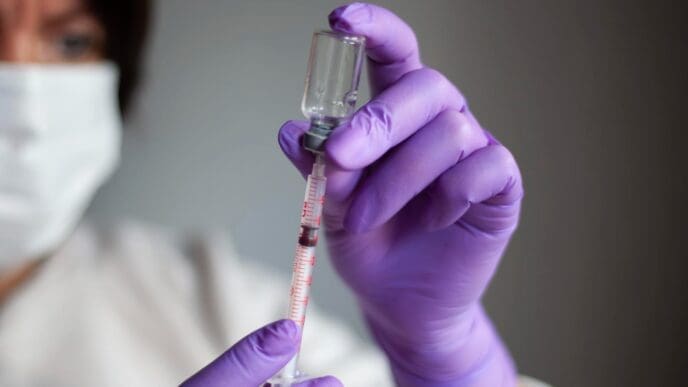A growing body of scientific evidence is illuminating the powerful connection between what we eat and how we feel, with a particular focus on the role of omega-3 fatty acids in managing depression. For individuals grappling with this pervasive mental health condition, these essential fats, found abundantly in sources like fatty fish, are emerging as a significant complementary therapy that can work alongside traditional treatments. Researchers believe these specific fats, most notably eicosapentaenoic acid (EPA) and docosahexaenoic acid (DHA), help combat depression by reducing brain inflammation, supporting neuron health, and improving the function of mood-regulating neurotransmitters, offering a promising, evidence-based avenue for holistic mental wellness.
What Are Omega-3 Fatty Acids?
Omega-3s are a type of polyunsaturated fat that our bodies need to function but cannot produce efficiently on their own. This is why they are called essential fatty acids; we must obtain them through our diet or supplementation. They are a crucial component of cell membranes throughout the body and play a vital role in everything from heart health to brain function.
While there are several types of omega-3s, three are particularly important for human health. Understanding their distinct roles is key to appreciating their connection to mental well-being.
The Key Players: EPA, DHA, and ALA
The three main omega-3s are EPA (eicosapentaenoic acid), DHA (docosahexaenoic acid), and ALA (alpha-linolenic acid). While all are beneficial, EPA and DHA, found primarily in marine sources, are the most direct players in brain health.
EPA (Eicosapentaenoic Acid) is strongly associated with the body’s inflammatory response. Its primary function is to produce signaling molecules called eicosanoids, which help quell inflammation. As research increasingly links chronic, low-grade inflammation to depression, EPA’s role as a potent anti-inflammatory agent has become a central focus of mental health nutrition.
DHA (Docosahexaenoic Acid) is a major structural component of the human brain and the retina. It is the most abundant omega-3 in the brain, making up a significant portion of the fatty acids in neuronal membranes. Healthy levels of DHA are critical for ensuring brain cells are fluid and flexible, which allows for efficient communication between them.
ALA (Alpha-Linolenic Acid) is found in plant sources like flaxseeds, chia seeds, and walnuts. The body can convert ALA into EPA and DHA, but this process is notoriously inefficient, with estimates suggesting that only a small percentage (often less than 5-10%) is successfully converted. Therefore, relying on ALA alone is not a reliable strategy for achieving therapeutic levels of EPA and DHA for mental health.
The Brain on Omega-3s: How They May Combat Depression
The link between omega-3s and depression isn’t just a general wellness claim; it’s rooted in several specific biological mechanisms. These fats appear to influence the brain in multiple ways that directly counteract the pathological changes associated with depressive disorders.
Reducing Inflammation
One of the most compelling theories is the inflammatory hypothesis of depression. This model suggests that chronic, low-grade inflammation in the body and brain (neuroinflammation) can trigger or worsen depressive symptoms. Inflammatory molecules can disrupt the production and function of key neurotransmitters like serotonin and dopamine and can even damage brain cells over time. EPA, in particular, directly competes with pro-inflammatory fats in the body, leading to the production of resolving agents that actively cool down the inflammatory process.
Supporting Cell Membrane Health
Every neuron in your brain is encased in a cell membrane, which is not a rigid wall but a fluid, dynamic barrier. The fluidity of this membrane is essential for receptors to function correctly and for nerve signals to be transmitted effectively. DHA is a primary building block of these membranes. A diet deficient in DHA can lead to stiffer, less functional membranes, impairing communication between brain cells. By ensuring the structural integrity of neurons, DHA helps maintain the foundational hardware for healthy brain signaling.
Enhancing Neurotransmitter Function
Omega-3s also appear to directly influence the neurotransmitter systems that are the target of most antidepressant medications. Research suggests they can increase serotonin levels by enhancing both its production and its release from neurons. Furthermore, by improving the fluidity of cell membranes, omega-3s can make it easier for serotonin to bind to its receptors, potentially making the entire system more efficient. This may help explain why some studies find that omega-3s can enhance the effectiveness of SSRI (Selective Serotonin Reuptake Inhibitor) antidepressants.
Promoting Neurogenesis and Brain Plasticity
For decades, scientists believed the adult brain couldn’t grow new cells. We now know this is untrue, thanks to the concept of neurogenesis. The brain’s ability to reorganize itself, form new connections, and create new neurons is known as neuroplasticity. In depression, neuroplasticity is often impaired, and key brain regions like the hippocampus (vital for memory and mood regulation) can shrink. Omega-3s, along with factors they promote like Brain-Derived Neurotrophic Factor (BDNF), appear to support the growth of new brain cells and enhance brain plasticity, helping to reverse some of the physical brain changes seen in chronic depression.
What Does the Research Say?
The scientific community has produced a wealth of research on this topic, including numerous clinical trials and meta-analyses. While the results are not uniformly positive, the overall trend is highly encouraging, especially when certain variables are considered.
Evidence for EPA’s Dominance
A critical finding from multiple large-scale reviews is that the ratio of EPA to DHA matters significantly. Meta-analyses combining the results of dozens of studies have consistently found that omega-3 supplements with a higher proportion of EPA are more effective at reducing depressive symptoms than those with more DHA or a balanced ratio. For treating depression, formulations containing at least 60% EPA relative to DHA appear to yield the best results.
Omega-3s as an Adjunctive Therapy
The evidence is particularly strong for using omega-3s as an adjunctive or add-on therapy. When taken alongside standard antidepressant medications, omega-3s have been shown to improve outcomes more than medication alone. This suggests a synergistic effect, where the anti-inflammatory and membrane-supporting actions of omega-3s create a better biological environment for antidepressants to do their work.
Limitations and Inconsistencies
It is important to maintain a balanced perspective. Not every study has found a benefit, and researchers point to several reasons for these inconsistencies. Discrepancies in dosage, the EPA/DHA ratio used, the duration of the trial, and the severity of the participants’ depression can all influence the outcome. More research is needed to pinpoint the ideal protocols for different populations.
Putting It Into Practice: How to Increase Your Omega-3 Intake
For those interested in leveraging the benefits of omega-3s, the approach can involve both diet and supplementation. It’s crucial to consult with a doctor or mental health professional before making significant changes, especially when considering therapeutic-dose supplements.
Dietary Sources
The most potent dietary sources of EPA and DHA are fatty, cold-water fish. Aiming for at least two servings per week is a standard recommendation for general health. Excellent choices include:
- Salmon (wild-caught tends to have a better omega-3 to omega-6 ratio)
- Mackerel
- Sardines
- Herring
- Anchovies
Plant-based sources of ALA, such as flaxseeds, chia seeds, walnuts, and hemp seeds, are healthy additions to any diet but should not be considered a substitute for direct EPA and DHA sources when targeting depression.
Considering Supplements
To achieve the doses used in clinical trials (which often exceed what is practical to get from diet alone), supplementation is often necessary. When choosing a supplement, several factors are critical.
What to Look For in a Supplement
- Dosage: Most successful studies on depression have used a combined dose of 1,000–2,000 mg (1–2 grams) of EPA and DHA per day. It is essential to read the label carefully to see how much EPA and DHA are in each capsule, not just the total “fish oil” amount.
- Ratio: As mentioned, look for a supplement where EPA makes up at least 60% of the total EPA+DHA content. A supplement with 650 mg of EPA and 350 mg of DHA, for example, meets this criterion.
- Purity and Quality: Reputable brands will use molecular distillation to remove heavy metals like mercury and other contaminants. Look for third-party testing certifications (like IFOS – International Fish Oil Standards) on the label to ensure purity and potency.
- Form: Fish oil comes in different molecular forms, primarily triglyceride (TG) and ethyl ester (EE). The triglyceride form is closer to how fat is found in fish naturally and is generally considered to be better absorbed by the body.
Safety and Side Effects
Omega-3 supplements are generally very safe. The most common side effects are mild and include fishy aftertaste, bad breath, or digestive upset. Taking them with a meal can help minimize these issues. However, at high doses, omega-3s can have a blood-thinning effect. Individuals on anticoagulant medications (like warfarin) or those scheduled for surgery must speak with their doctor before starting a high-dose regimen.
Conclusion
The connection between omega-3 fatty acids and depression represents a pivotal shift towards a more integrated understanding of mental health. The evidence strongly suggests that these essential fats, particularly EPA, can play a meaningful role in managing depressive symptoms by targeting core biological issues like neuroinflammation and cellular dysfunction. While not a standalone cure, omega-3s are a powerful, evidence-based tool that can complement established treatments. By embracing the role of nutrition in brain health, we open up a vital new front in the fight for mental well-being, empowering individuals with actionable steps they can take to support their journey to recovery.












